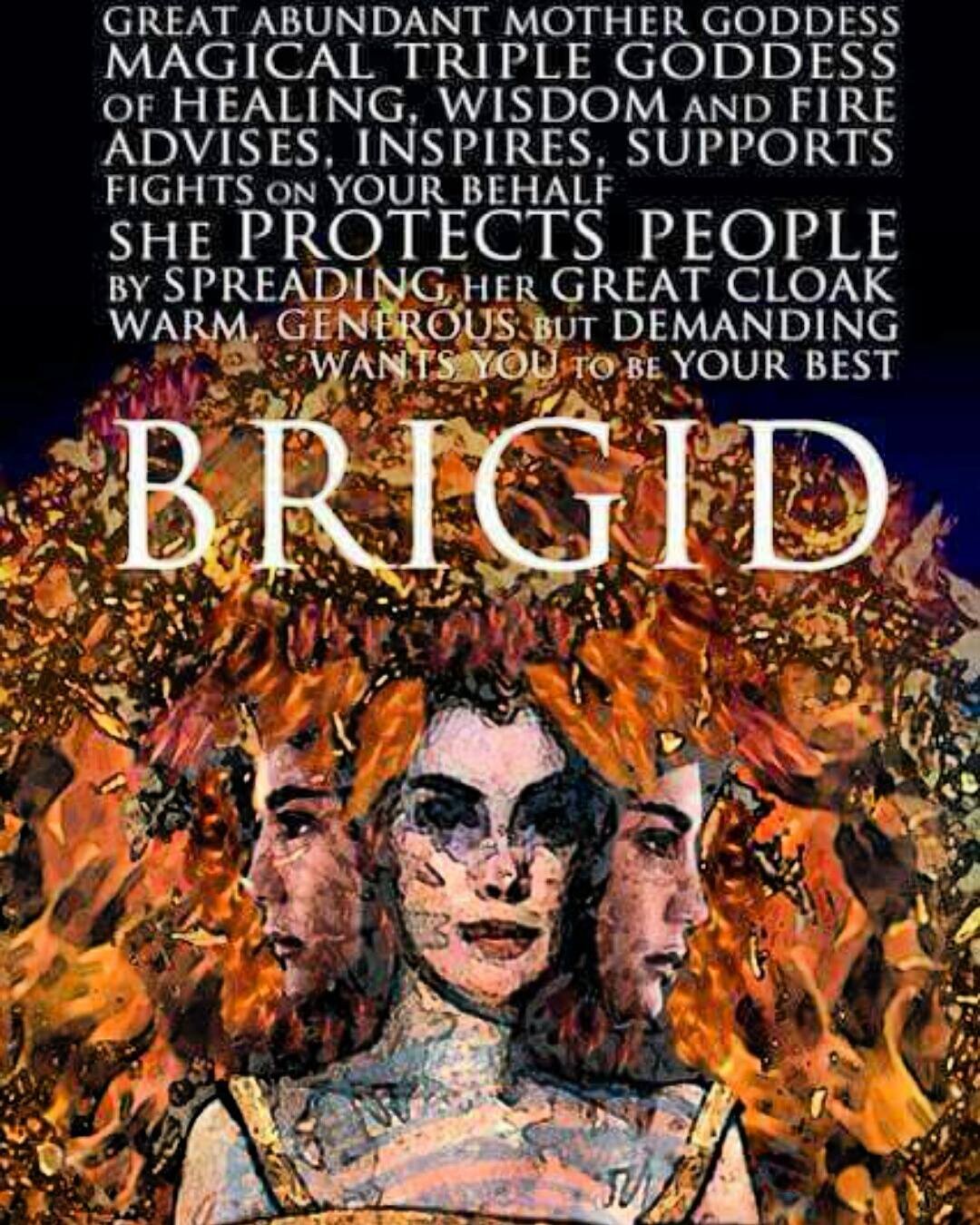Brigid’s Fire by Courtney Davis
BRIGID’S DAY IS IRELAND’S NEW NATIONAL HOLIDAY
Sweet victory for all Mná! #BrigidsDay is Ireland's new annual national holiday from 2023. The time has come to write a new story of unity and equality, by celebrating Ireland’s Celtic Goddess and matron Saint Brigid equally to our world famous St. Patrick. Since 2019, Herstory has spearheaded the campaign to make Brigid’s Day a national holiday, launching a petition, lobbying politicians and creating the perfect media storm.
““ Brigid is the bridge, crossing the threshold from Goddess to Saint, Celtic to Christian, North and South, winter and spring, water and fire, masculine and feminine, ancient and modern.” ”
FESTIVAL OF LIGHT
The first of February marks the beginning of Spring and the ancient Celtic festival of Imbolc, once honoured as the feast of the goddess. To reignite this epic ritual, the annual International Herstory Festival of Light co-produced with Dodeca takes place over the weekend of Brigid’s Day every year.
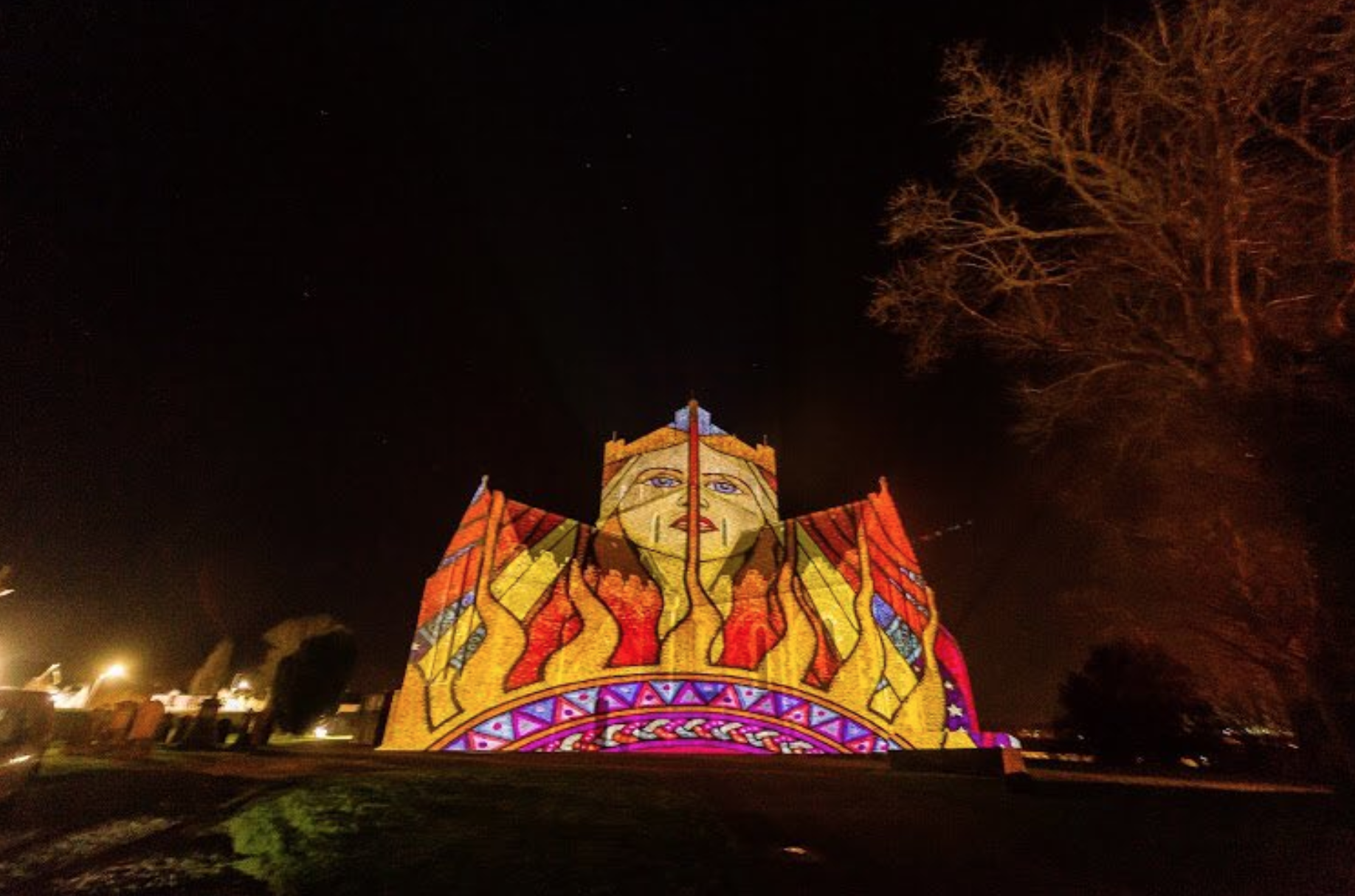
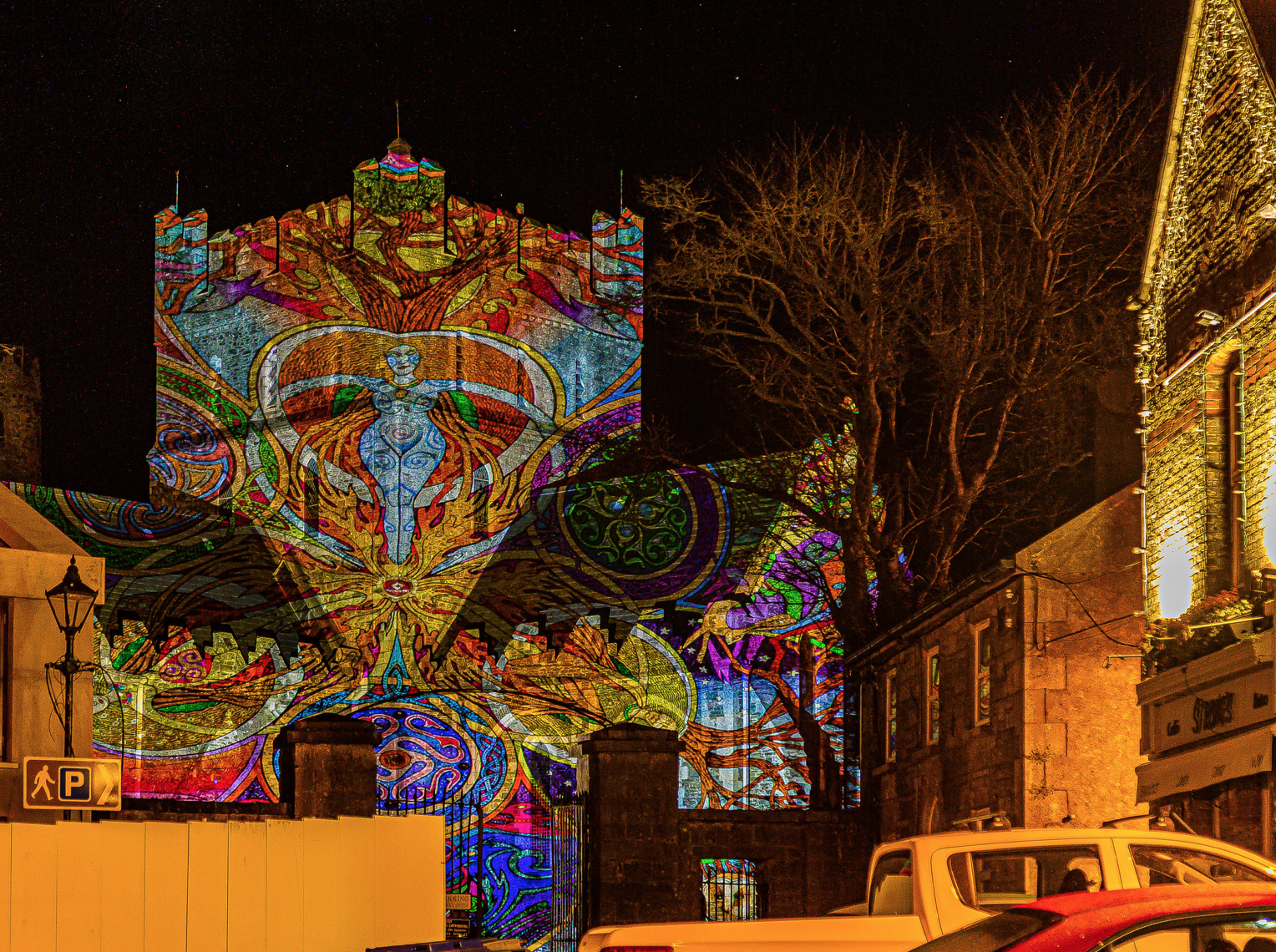
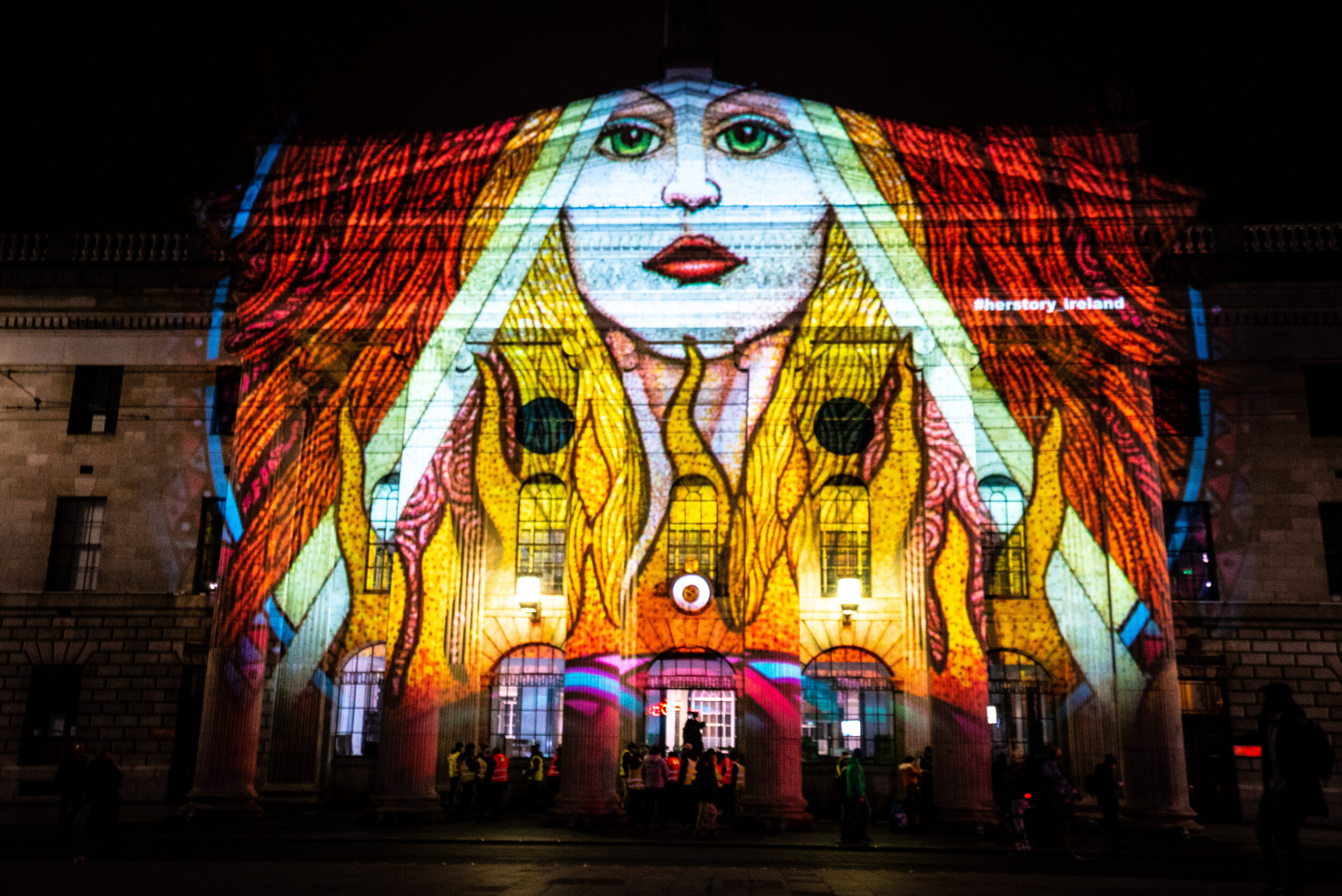
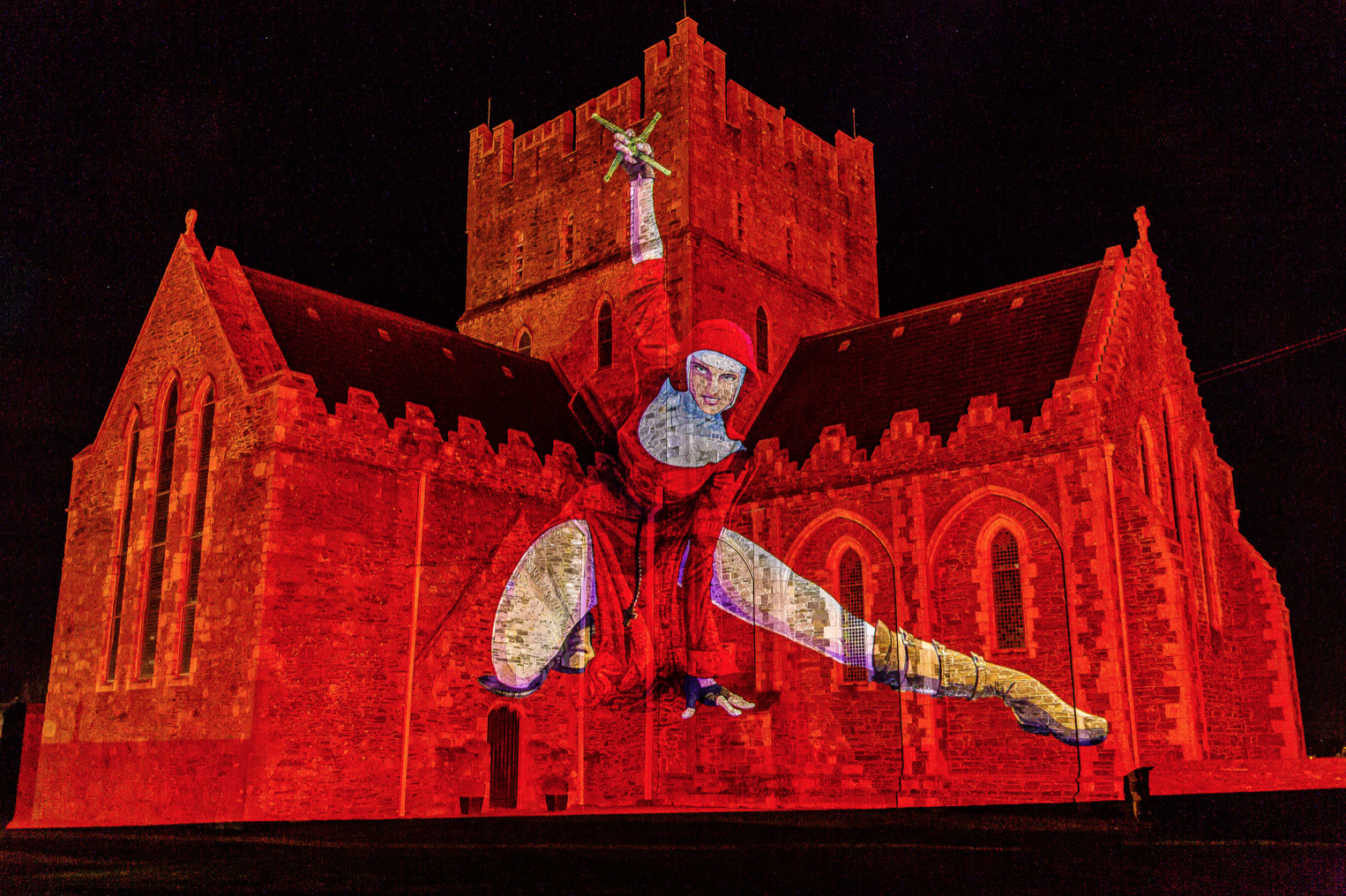
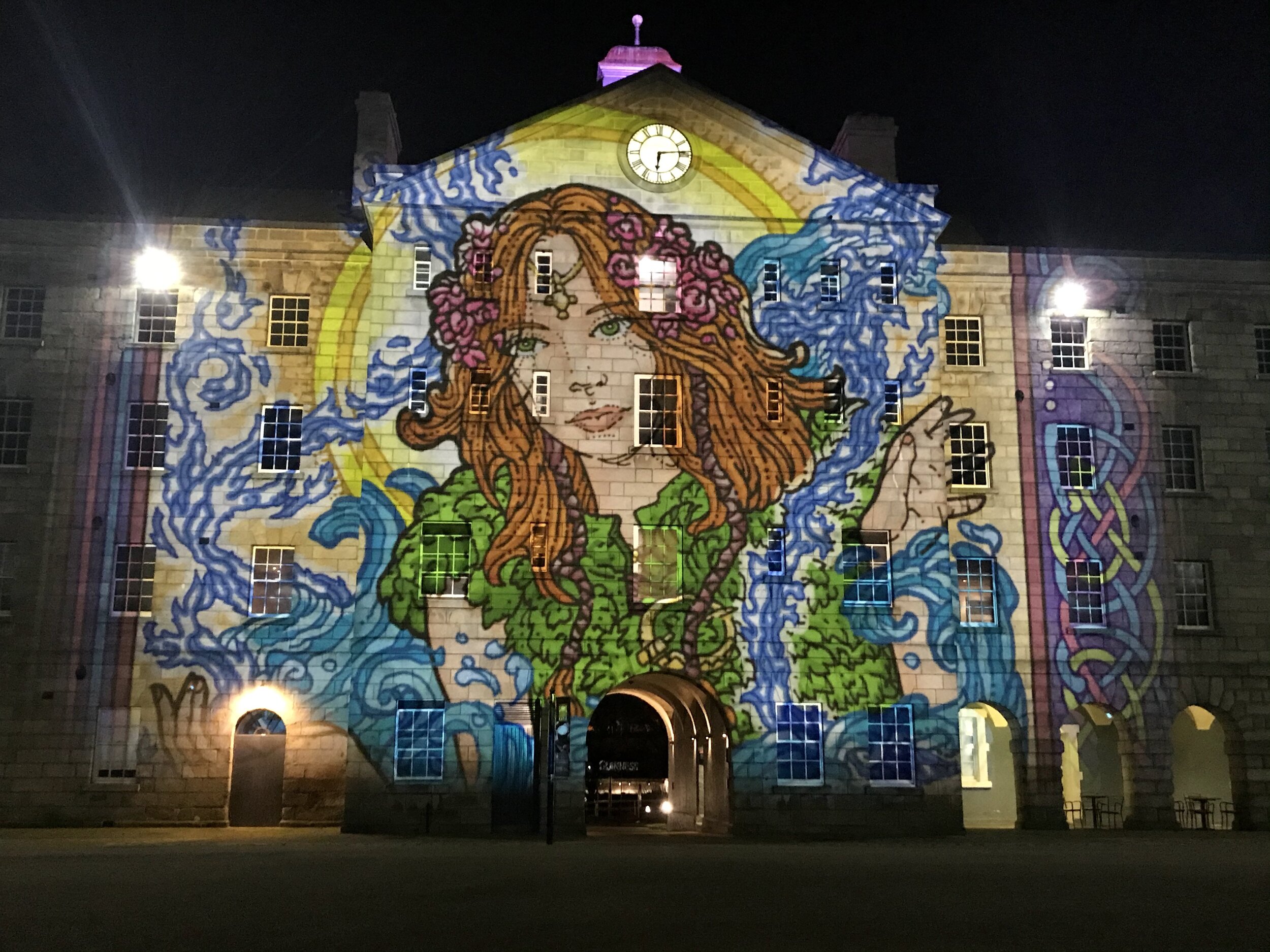


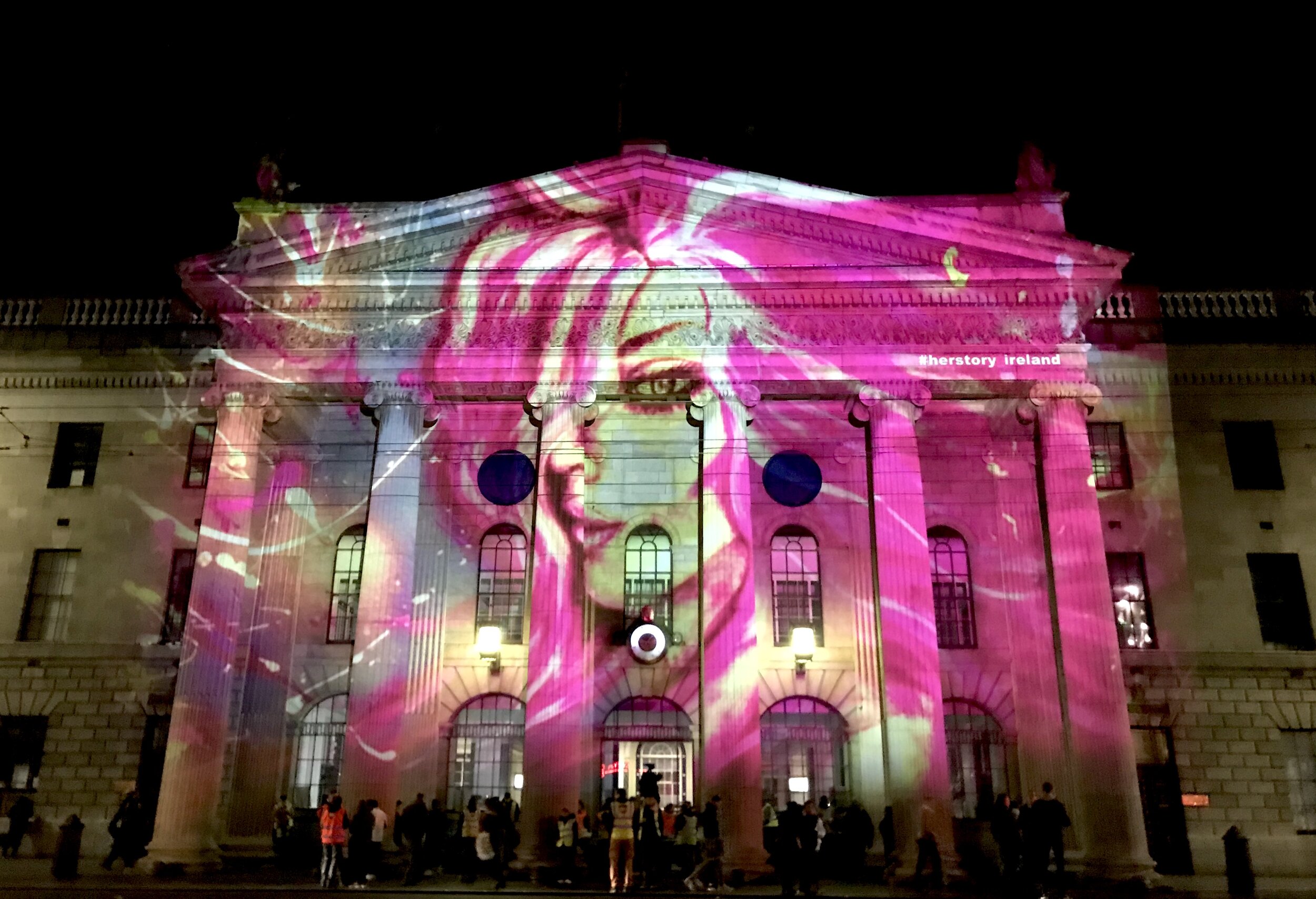
REAWAKENING
THE REAL BRIGID
The Bard is the collective stories of our ancestors, sanctioned and shared by the people for the people. Sandy Dunlop, co-founder of Bard Mythologies, explains that ‘myth is an early psychology and the operating system of a culture,’ gifting insights into the values and beliefs of our ancestors. Ireland is named after the goddess Ériu and the three origin stories of Ireland have empowering goddess protagonists: Ériu, Boann and Cessair. Evidently there is much wisdom to be gleaned and reawakened from our ancient culture on the journey to equality.
““The stories we tell ourselves about our origins reflect how our culture views the world, our place in it, and our relationship with the other living things which inhabit it. The stories contained in the oldest Irish literature tell us that women were important. Women – or goddesses – settled the land, personified the land, shaped the land, and represented the moral and spiritual authority of the Otherworld. These old stories contrast dramatically with the way women are represented in later, more patriarchal traditions. In the Biblical story of Eve, for example, the First Woman was the cause of humanity’s sufferings, bringing death to the world, not life. This view of women paved the way for centuries of repression, and there are many examples of that repression continuing today.
Maybe it’s time to look back at those old stories, and remember who women once were in our native traditions, and can be again.””
THE GODDESS
ANCIENT LEGEND. MODERN ICON.
Image: Brigid by Louise Rowland for the Herstory Education Programme
Truth be told, Brigid was a pan-European goddess. Rising from Danú and the land of the Danube in southern Germany, her influence spread all across Europe from Turkey to Spain.
In Ireland, Brigid was one of the original goddesses of the Tuatha dé Danann and she was celebrated as an Ulster goddess – in ancient times, north of the River Boyne was Ulster.
“What is the goddess? It isn’t any one person, it’s everyone,” explained psychiatrist and Jungian psycho-analyst Dr. Máirín Ní Nualláin at the 2019 Bard Summer School. “The collective unconscious is the element of human beings that we all share in common. Myth is important because it comes from the collective unconscious.”
Brigid, the triple goddess by Courtney Davis
Brigid is a triple goddess – the goddess of healing symbolised by the element of water, goddess of the alchemical force of fire, and goddess of poetry. In this respect she represents every woman and our unique talents, skills and qualities. Too often we put ourselves in boxes, limited by cultural stereotypes in an effort to fit in. Brigid urges you to develop and express all your gifts.
“ “Women’s stories are as powerful, inspiring, and terrifying as the goddess herself. And in fact, these are the stories of the goddess. As women, we know her because we are her. Each woman, no matter how powerless she may feel, is a cell within her vast form, an embodiment of her essence, and each woman’s story is a chapter in the biography of the Sacred Feminine.” ”
Brigid by Bill Felton for Bard Mythologies
Brigid embodies mastery represented in the perfect balance of fire and water, symbols of the masculine and feminine, known in Eastern traditions as the yin and yang or ida and pingala. As we strive for equality today, Brigid reminds us that we must also heal our inner feminine and masculine. As within so without, as above so below. She is a reminder that duality and separation are illusions. Unity and harmony are our true nature.
“Raising her day to a national holiday is also a welcome recognition of the equality of the feminine with the masculine in society. Because of her very strong association with fertility and the natural world, Brigid is also the perfect patron of the ecology movement. She can become the Mother Earth figure of the awakening consciousness of the beauty and fragility of this Earth, and our human dependency on this Earth, and our interconnectedness with all the other species sharing the planet with us.”
The Goddess offers a window into our ancient past and the wisdom of Celtic spirituality, rooted in a deep and joyful reverence for nature. In this era of ecological crisis, it’s time to reawaken our innate symbiotic love for Mother Earth and in the words of philosopher John Moriarty, ‘remember how to walk beautifully on the earth again.’
““Both the mythical and archaeological evidence indicate that perhaps the most notable quality of the pre-dominator mind was its recognition of our oneness with all of nature, which lies at the heart of both Neolithic and the Cretan worship of the Goddess. Increasingly, the work of modern ecologists indicates that this earlier quality of mind, in our time often associated with some types of Eastern spirituality, was far advanced beyond today’s environmentally destructive ideology.”
”
THE SAINT
There’s much more to Saint Brigid than the legend of her ever-expanding cloak and the iconic woven cross.
““Saint Brigid was the daughter of a druid and she had a lot of qualities of a goddess. The qualities of the goddess represent Christianity, the good qualities like compassion and love of animals and care of people. She was that person who was both the Christian Saint and she brought the goddess culture.” ”
Saint Brigid by Seán Branigan, Storyboard Workshop
Legend has it her father wanted to marry her off but she decided to devote her life to compassionate care of the poor and animals, so she pulled out one of her eyes to destroy her beauty. Whatever about her outer beauty being tarnished, her inner beauty continued to grow, illuminating every heart lucky enough to encounter her. The legends spread of miracle healings, taming of wild animals, and turning water to ale.
Brigid's Way Celtic Pilgrimage, a nine day route from Faughart in Louth to her Fire Temple and Wells in Kildare, rediscovered in 2013, is Ireland's version of the Camino de Santiago, attracting international secular pilgrims who connect with her feisty, can-do and powerful self-healing energies - essential in our world today.
““It’s been over 1500 years since St. Brigid walked these lands and longer still since the time of Goddess Brigid, yet She has much to offer us today. A guiding light for some of Ireland’s greatest humanitarians and revolutionaries including Grace O’ Malley, Lady Gregory and Maud Gonne, Brigid has been a source of inspiration in my own life too.””
Brigid’s Fire by Courtney Davis
In The Life of Brigid, her biographer Cogitosus reveals that Brigid was a born leader who charismatically persuaded the Christian hermit Conleth to abandon his life of solitude and join her to form a ‘mutally happy alliance’ and lead the Kildare community. He was the bishop and she was the abbess, and together they created a double monastery from the Early Christian tradition. Within 100 year of her death, there was a thriving egalitarian monastery of men and women, living and practicing equally, side-by-side.
In the 21st century, Brigid reemerged as an inspirational heroine of the Marriage Equality and Repeal the 8th referendums - both extraordinary victories of compassion. Ireland’s matron saint is our first recorded abortionist, compassionately ‘restoring a nun’s chastity’, as recorded by early Christian monks in The Annals. She was also a lesbian, ‘sharing her bed with a woman.’ Brigid may be an anomaly for Catholicism but one thing is for sure, she represents true Christianity.
“Brigid is Celtic goddess, Christian saint, and a symbol of feminine power and compassion, who transcends religion or spirituality, making her inclusive and appealing for all faiths and none.”
In one generation, Ireland has transformed from No Country for Women to a world leader for equality. The time has come to write a new story of unity by celebrating Brigid and all Mná, a proclamation of a true Ireland of Equals and the realisation of the 1916 vision that made Ireland the first country in the world to promise equal rights and religious freedom to all men, women and children. Making Brigid’s Day a national holiday is a true reflection of today’s progressive, inclusive Ireland, sending a strong egalitarian message to the world.
Article by Herstory Founder Melanie Lynch
If you are inspired to discover more about Brigid we recommend the following fascinating articles and books:
- Ireland’s own 5th-century female bishop: Brigid of Kildare by Maeve Callan
Brigit: Soulsmith for the New Millennium by Dr. Mary Condren
Stories of Brigid: Goddess and Saint, a retelling by Karina Tynan
The Book of St Brigid by Colm Keane & Una O’Hagan
Brigid and Darlughdach: Celtic saint loved her female soulmate by Kittredge Cherry
Boss Brigit by Dr. Niamh Wycherley
St. Brigid article, Woman’s Way
Transition by Courtney Davis



